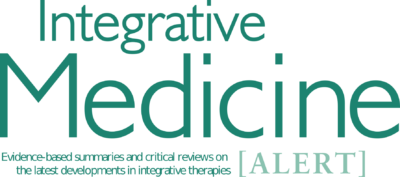
Integrative Medicine Alert – August 1, 2012
August 1, 2012
View Archives Issues
-
Mind-Body Medicine and Menopause
Menopausal women anecdotally report that their hot flashes are worse with stress;1 for instance, if a woman has an unpleasant confrontation, she notices that it will trigger a hot flash. Research supports these anecdotal experiences. Lab stressors such as arithmetic tasks can also increase hot flashes. When women are randomized to a lab stressor condition vs a non-stress condition, those in the stress condition have 47-57% more hot flashes.2 Women are not just reporting more hot flashes during periods of stress; objective measurements of hot flashes confirm the increase during stress conditions. Stress appears to lower the threshold for hot flashes to occur. -
High-Intensity Interval Training: A Sprint or Nine Saves Time?
Strong evidence supports regular exercise as a lifestyle habit and intervention that lowers risk for a myriad of diseases including coronary heart disease, high blood pressure, type 2 diabetes, obesity, and breast and colon cancers.1 In addition, exercise has gained treatment status for cardiometabolic risk factors, type 2 diabetes, osteopenia and osteoporosis, and rehabilitation for existing cardiac disease. -
Don’t Just Sit There: Sitting, TV Viewing, and Mortality
Findings from this unique investigation add a new wrinkle to concerns over the increasingly sedentary nature of American society. They also suggest that years could be added to general life expectancy simply by limiting time spent sitting and TV viewing. -
The Vitamin D and Mobility Connection
Low serum 25-hydroxyvitamin D correlates with the development of mobility limitations and disability in older people who were otherwise healthy. -
Dietary Lignan Intake and Breast Cancer Risk
In this case-control study, dietary lignan intake was inversely associated with risk of breast cancer in both premenopausal and postmenopausal women. Also noted were more favorable prognostic characteristics associated with lignan intake, especially in premenopausal women.
